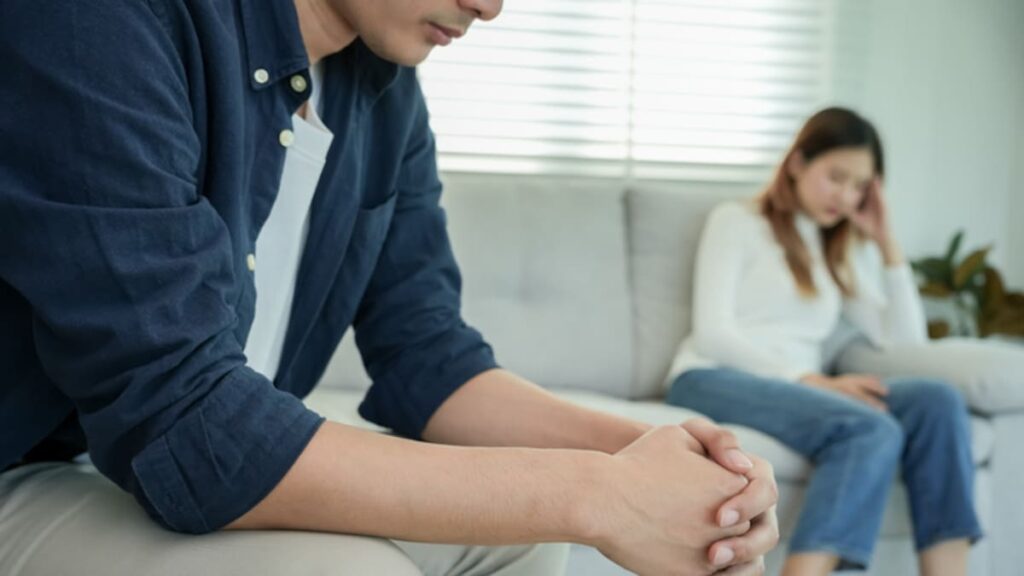
A husband’s decision to leave his cancer-stricken wife has sparked outrage and highlighted a grim trend that is more common than many might think. The incident came to light after a text message exchange between the husband and his wife, Marie, was shared online, revealing his reasons for leaving her during her battle with brain cancer.
In the text, the husband expressed his inability to handle watching Marie die, stating, “I feel alone, I feel trapped, I’m not sure where or what I’m going to do … I’ve invested a lot during your treatment so I’m recouping what I put in plus extra for my future. I can still have one.” He further apologized for her condition and urged her to “be happy for me, that I can live for us both.”
Men More Likely to Leave Sick Partners
This heartbreaking incident is not isolated. Recent studies have shown that men are statistically more likely to leave their wives following a cancer diagnosis than vice versa. A 2025 study involving over 25,000 heterosexual couples across 27 European countries revealed that divorce rates increased when the wife was diagnosed with a serious illness. In contrast, the likelihood of divorce did not increase if the husband was the one facing health issues.
Similarly, a 2015 study tracking 2701 marriages found that while only 6% of cases ended in divorce following a health crisis, all were initiated by men. Another study from 2009 identified that the strongest predictor for separation or divorce among brain cancer patients was the gender of the sick individual, with men being seven times more likely to leave a sick partner than women.
Women Bear the Brunt of Care Responsibilities
Professor Alex Broom, a sociology expert at the University of Sydney, explained that these findings reflect broader societal inequities in marriage dynamics. “Research has often shown that women bear the brunt of caring responsibilities at both ends of life,” he noted. “The men in their lives can be ill-equipped to provide them with care and support when they need it – whether in the context of serious illness or at the end of life.”
Broom emphasized that despite societal progress, patriarchal norms still influence the distribution of care responsibilities. “The increase in women’s participation in the workforce has increased women’s paid income and assets but not necessarily equalized the distribution of informal caring responsibilities,” he said. “The ‘caring gap’ may explain why some men ‘jump’ when faced with difficult scenarios.”
Personal Accounts and Expert Opinions
Marie, who is now facing her illness alone, shared her feelings of betrayal. “We met in high school, I supported him financially during his degree, I was there when his sister died,” she recounted. “Now I’m just sitting in our apartment, unsure where to go next. That money was there for future treatments, it was money I helped accrue … To take it all. I just can’t.”
Relationship counsellor Paul Brunson discussed this disturbing trend on the ‘Diary of a CEO’ podcast, describing it as “alarming” and “shocking.” He noted, “What these men say is that they’re no longer getting their emotional or physical intimacy needs met, and as a result of no longer getting this thing, they’re out.”
Public Reaction and Future Implications
The online reaction to Marie’s situation has been one of overwhelming support and shared outrage. Many women expressed their disgust but noted that they were not surprised by the statistics. Comments ranged from encouragement for Marie to disbelief at the lack of male support in the comments.
This situation underscores the need for a societal shift in how care responsibilities are viewed and shared within relationships. As awareness grows, there is hope that future generations will foster more equitable partnerships, where support is mutual and unwavering, even in the face of life’s toughest challenges.





